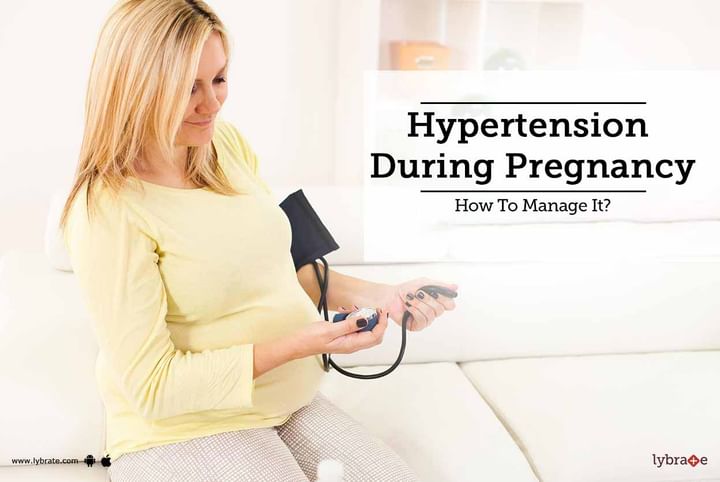Hypertension During Pregnancy - How To Manage It?
Have you given birth to a newborn of late? Or, are you expecting to be a new mother in a couple of months? Whatever the trigger you surely know how motherhood brings about a huge lot of changes within and without. Motherhood, as a gratifying experience gradually works on our view of the world. It significantly shapes the perspectives of people closely related to us. Such changes are internal and go way deeper in deciding the kind of parenthood you are ready for. The more obvious changes are however not satisfying. Many women find it strenuous to accept how their body changes every passing week. There are other disadvantageous health issues an expecting woman is known to face. From headaches to hormonal imbalances, to back pain and fatigue; they face it all. Reportedly, the most prevalent yet distressing problem among pregnant women is that of hypertension. Causal factors leading to hypertension could be many; it is necessary to get diagnosed before your condition is too acute to tackle.
How can you regulate hypertension to keep healthy while pregnant:
1. Addiction is a complete no-no: If you are addicted to smoking or drinking, you should stop immediately. Your bad habits can increase your blood pressure by a high percentage. You must also abstain from taking other banned drugs.
2. Obesity is a major concern: Some people think obesity to be a sign of health during pregnancy. It is important to be strong and healthy, but an excess of adipose tissues is really not required. Obesity can also lead to miscarriages. Even if you feel like binge eating, stick to a nutritious diet and avoid irregular food habits. The kind of food you take also determines your blood flow. It is better to eat food that has a low level of sodium.
3. Indulge in physical activities: Routine workouts and moderate household activities that do not involve exertion must be done by all pregnant women. Exercise helps in circulating blood properly. It effectively betters your condition of hypertension. Consult a healthcare provider for good advice.
4. Twins or triplets: If you are carrying more than one baby, you are at a higher risk of suffering from hypertension as your body is making adjustments to added stress. In such a case one needs to take medications to control blood pressure following the advice of a doctor.
5. If you are above forty: Pregnant women over the age of forty are more likely to develop one of the four kinds of hypertension typically faced during childbearing. Since at this age, your body has already started degenerating you might be lacking in vitamins. Vitamin supplements for pregnancy with enough folic acid is strongly recommended.
6. A family history of hypertension in pregnancy: If someone in your family has a history of hypertension, the chances of you having it are high. Similarly, your child will also be genetically predisposed to hypertension. Hypertension during pregnancy is one of the major causes of maternal morbidity and mortality responsible for 10–15% of maternal deaths. Pregnancy-induced hypertension occurs when the blood pressure elevates to ≥140/90 mm Hg, usually 20 weeks after the gestation period and resolves by 12 weeks of postpartum when the mother’s body undergoes significant changes. This increases the chances of hypertension progressing into preeclampsia (high blood pressure and high protein levels in the urine). It can also result in premature delivery. The increased risk factor in the family history of hypertension and in pathological conditions like thrombophilias and pre-existing vascular disease.
7. Pre-existing vascular disease: Vascular diseases have been estimated to be present in 1% to 4% of pregnancies. It may complicate the course of pregnancy. The changes are mostly hemodynamic (changes related to blood) which propels the risk of cardiac arrest (by 30-50%), strokes (by 20%) and peripheral vasodilation (decreased blood pressure and decreased valvular regurgitation). These changes are noticed in the initial stages of pregnancy which then aggravates at approximately 20 weeks' gestation. During pregnancy, blood volume expands and the plasma (a yellow coloured fluid component of the blood) volume rises more than the erythrocyte (a red blood cell) volume, resulting in severe anemia. The blood vessels are a very essential part of your body, carrying oxygen and nutrients to different organs. Any damage to them can lead to severe complications, which can be life-threatening. Hence, proper monitoring, diagnosis, and care are necessary.



+1.svg)
